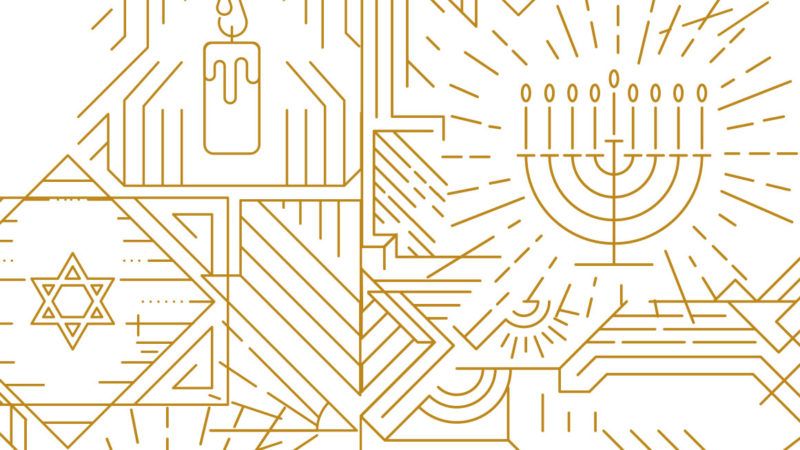Is Passover the Most Libertarian Holiday?
The annual retelling of the Exodus story reminds us not to take freedom for granted.

Short of opening a libertarian theme park ("Ride the Rockin' Road to Serfdom!"), it can be difficult to make the love of liberty a "lived experience," especially for kids. What we need is something hands-on—an emotional, immersive experience that gets children and their parents totally involved.
Fortunately, this multimedia memory-maker already exists. It's called Passover.
Passover is the Jewish festival of freedom. It's an annual retelling of the Exodus story, complete with jingles, novelty foods, and cash prizes. Moses went down to Egyptland more than 3,000 years ago, yet the story miraculously manages—like last year's matzo—to stay fresh as ever.
Matzo
Not for nothing do some Jews jokingly call this holiday the "festival of constipation." Matzo is the corrugated cardboard–like bread substitute we are commanded to eat all eight days of Passover. The story says that when Pharaoh finally let the Jews go, they feared he might change his mind, so they fled without even waiting for their dough to rise. To this day, we eat the same thing they did: unleavened bread. The fact that it wreaks havoc on many a digestive system is actually quite clever: Our suffering reminds us of our forebears' suffering. In fact, on Passover, we can't even say they, as in "They left Egypt." We have to say me or we, as in "This is to remember when God took me out of Egypt." Because, as the haggadah points out, if "they" hadn't been taken out, "we" would still be there. Touché!
The Haggadah
This is the Passover playbook filled with stories, songs, and stage directions such as "lift the matzo and show it to everyone." What other holiday comes with its own instruction book? And since it's all right there, this is a holiday Jews basically celebrate in the same way from Texas to Tel Aviv. We eat an apple and nut mixture that reminds us of the mortar they…er, we…used to build Pharaoh's temples. We eat bitter herbs to feel, well, bitter. We point to a lamb shank bone to remember how they (we!) painted lamb's blood on our doorframes so God would pass over us (yes, that's where the word comes from) when he got to Plague No. 10, the killing of the firstborn sons. We even spill some wine as a small sacrifice in honor of the suffering of the Egyptians themselves. Every bit of the service points back to how terrible it was to be enslaved, reminding us that our duty is to be grateful for—and to work to spread—freedom.
'Dayenu'
One particular song dominates this holiday: "Dayenu." In Hebrew, the word means "it would have been enough." As in: If God had just taken us out of Egypt, it would have been enough—but He did so much more, which the song then goes on to list. The key here is the killer chorus, in which dayenu is repeated endlessly. It's so simple that a toddler can sing it. Jews with Alzheimer's can sing it too—even after they've forgotten almost everything else. (I've witnessed this myself.) That is a great jingle.
The Four Questions
The freedom theme is front and center again when the youngest child at the Passover dinner is expected to ask the famous "four questions," beginning with: "Why is this night different from all other nights?" Why? Because this is the night we really try to feel what it was like to be a slave set free. Each of the four questions gets back to that point: Oppression bad. Liberty amazing! Assigning question duty to the youngest kid guarantees that every child will do it at some point, assuring a lot of buy-in. And since it's the kid's first big moment in the family spotlight, not to mention the great river of Jewish tradition, it's memorable for everyone at the table.
The Afikomen
At the end of the meal, kids go hunting for a little piece of—you guessed it—matzo, known as the afikomen. The winner gets a prize, often cash that he or she has to haggle for. Just like trade show organizers promising the grand prize drawing at the end, this scavenger hunt keeps people from leaving early. It also gets the kids running around, bonding (and fighting) with their cousins, assuring even more memories are made.
If the holiday just featured a special game, dayenu. If it featured a special game and a special food, dayenu. But Passover works on every level, hammering home the message: Thank God (literally!) for freedom.
